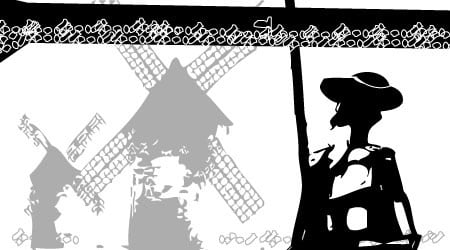Why is the Quijote still being read today?

Lecture by Dr. Roberto González Echevarría, Yale Sterling Professor of Hispanic and Comparative Literature and 2010 National Humanities Medal Winner.
The fashion of equating the Quijote with Spain emerged during the Romantic period in the first half of the nineteenth century and peaked with the so-called Generation of ‘98, particularly with Unamuno. It extended throughout the twentieth century with authors such as Américo Castro and can be found in Franco regime propaganda which promoted the concept of “Hispanidad” as an essential component of its ideology. Yet this conflation of text and country is as much a relic of the past, as the Quijote’s notion of chivalry.
But why is a book published more than 400 years ago still read by writers and readers of all languages? Because Cervantes not only inaugurated the concept of the modern novel as we know it, but seems to have taken it to the limit its possibilities. Cervantes’ technical discoveries are still valid for today’s novelists — from the creation of characters by means of dialogue to the creation of characters, by other characters! Additionally, the general public continues to find in the Quijote attitudes and ideas that are still valid to daily life, and for the understanding of their relation with an often hostile world.
With Hamlet, Don Quijote is the quintessential modern hero, as visceral, flawed and relevant to today’s turbulent times as he was at the dawn of the Siglo de Oro.
The Asociación Líderes Hispanos cordially invites you to attend the lecture. A reception in his honor will immediately follow the lecture.
Space is Limited, R.S.V.P no later than September 2nd at with name and number attending. You will receive an email confirmation.
- Literature
- Washington, D.C.
- Sep 8, 2011
- 06:30 pm
Venue
Embassy of Spain, 2375 Pennsylvania Avenue Northwest, Washington D.C., DC 20037
View on Google MapsPhone
202-728-2334